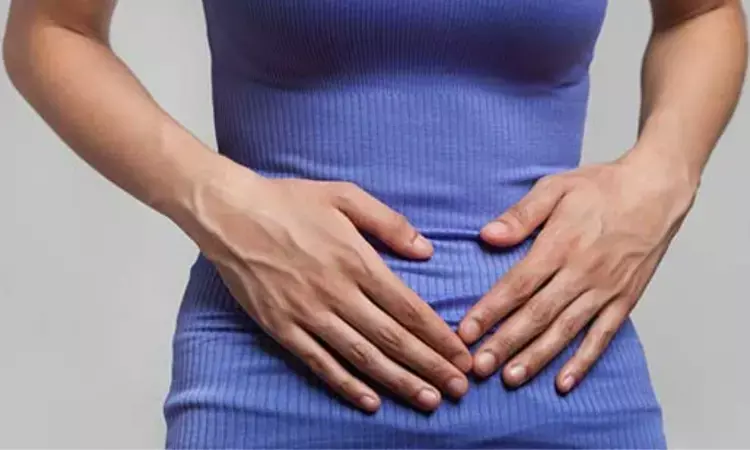- Home
- Medical news & Guidelines
- Anesthesiology
- Cardiology and CTVS
- Critical Care
- Dentistry
- Dermatology
- Diabetes and Endocrinology
- ENT
- Gastroenterology
- Medicine
- Nephrology
- Neurology
- Obstretics-Gynaecology
- Oncology
- Ophthalmology
- Orthopaedics
- Pediatrics-Neonatology
- Psychiatry
- Pulmonology
- Radiology
- Surgery
- Urology
- Laboratory Medicine
- Diet
- Nursing
- Paramedical
- Physiotherapy
- Health news
- Fact Check
- Bone Health Fact Check
- Brain Health Fact Check
- Cancer Related Fact Check
- Child Care Fact Check
- Dental and oral health fact check
- Diabetes and metabolic health fact check
- Diet and Nutrition Fact Check
- Eye and ENT Care Fact Check
- Fitness fact check
- Gut health fact check
- Heart health fact check
- Kidney health fact check
- Medical education fact check
- Men's health fact check
- Respiratory fact check
- Skin and hair care fact check
- Vaccine and Immunization fact check
- Women's health fact check
- AYUSH
- State News
- Andaman and Nicobar Islands
- Andhra Pradesh
- Arunachal Pradesh
- Assam
- Bihar
- Chandigarh
- Chattisgarh
- Dadra and Nagar Haveli
- Daman and Diu
- Delhi
- Goa
- Gujarat
- Haryana
- Himachal Pradesh
- Jammu & Kashmir
- Jharkhand
- Karnataka
- Kerala
- Ladakh
- Lakshadweep
- Madhya Pradesh
- Maharashtra
- Manipur
- Meghalaya
- Mizoram
- Nagaland
- Odisha
- Puducherry
- Punjab
- Rajasthan
- Sikkim
- Tamil Nadu
- Telangana
- Tripura
- Uttar Pradesh
- Uttrakhand
- West Bengal
- Medical Education
- Industry
Serum Vitamin D Key Marker for Early Continence Recovery After Radical Prostatectomy: Study

A new study published in the Canadian Urological Association Journal found serum vitamin D levels to play a crucial role in regaining continence in the early period after radical prostatectomy.
One of the main surgical side effects that significantly lowers a patient's quality of life is post-prostatectomy incontinence (PPI). Vitamin D receptors in the pelvic floor's striated muscles were discovered to diminish with age. Vitamin D receptors in the pelvic floor's striated muscles were discovered to diminish with age.
According to studies, vitamin D supplements also have a favorable impact on male lower urinary tract symptoms (LUTS) and female urine incontinence. The purpose of this study was to determine if vitamin D levels and post-prostatectomy incontinence are related. The study's population consisted of patients who had robotic radical prostatectomy performed in a tertiary facility and comprised patients whose blood vitamin D levels were assessed three months prior to robotic radical prostatectomy.
At 1, 3, 6, and 12 months after surgery, the continuity status was noted. Either no pee leak or utilizing a pad to feel safe against possible slight leakage was considered urinary continence. Based on their continence state at the 12th postoperative month, the patients were split into two groups: PPI patients and continent patients. Serum vitamin D levels, previously identified PPI risk variables, and patient characteristics were compared between the groups.
There were a total of 318 patients in the total research group with the PPI rate being 14.5%. Propensity score matching was used since group 2's mean age, body mass index, and prostate volume were all considerably greater than group 1's. Serum vitamin D levels were higher in group 1 than in group 2 at the 12th postoperative month before and after propensity score matching, but there was no statistically significant difference.
At 1, 3, and 6 months postoperatively, however, serum vitamin D levels were significantly higher in continent patients than incontinent patients following propensity score matching. Overall, serum vitamin D has been found to have no positive impact on long-term PPI. But in the early stages, it could be a crucial indicator for restoring continence.
Source:
Şam, E., Söğütdelen, E., Akkaş, F., Şeker, K. G., Özlü, D. N., & Güner, E. (2025). Can preoperative vitamin D level be a predictive factor for continence after radical prostatectomy? Journal de l’Association Des Urologues Du Canada [Canadian Urological Association Journal]. https://doi.org/10.5489/cuaj.8999
Neuroscience Masters graduate
Jacinthlyn Sylvia, a Neuroscience Master's graduate from Chennai has worked extensively in deciphering the neurobiology of cognition and motor control in aging. She also has spread-out exposure to Neurosurgery from her Bachelor’s. She is currently involved in active Neuro-Oncology research. She is an upcoming neuroscientist with a fiery passion for writing. Her news cover at Medical Dialogues feature recent discoveries and updates from the healthcare and biomedical research fields. She can be reached at editorial@medicaldialogues.in
Dr Kamal Kant Kohli-MBBS, DTCD- a chest specialist with more than 30 years of practice and a flair for writing clinical articles, Dr Kamal Kant Kohli joined Medical Dialogues as a Chief Editor of Medical News. Besides writing articles, as an editor, he proofreads and verifies all the medical content published on Medical Dialogues including those coming from journals, studies,medical conferences,guidelines etc. Email: drkohli@medicaldialogues.in. Contact no. 011-43720751


